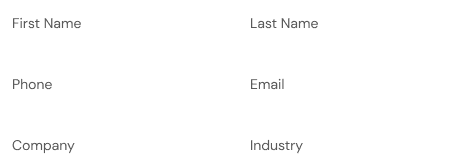
8 Cultural Traits Filipinos Bring to Remote Workplaces & Why to Hire Them
When building an outsourced team for your business, it is essential to consider your future employees’ work culture, personalities, and traits. While some can adapt their preferences and mindset depending on the company they work for, it is undeniable how these things affect the performance and decision-making of your employees. So, if you’re looking to hire Filipino remote workers, this blog will help you understand a part of their culture that is deeply ingrained into their working qualities.
Filipinos are known for their admirable personalities and rich culture, which transcends their friendliness, hospitality, and loyalty to work. Whether they are in a corporate business, digital marketing, or medical field, some standard Filipino workplace etiquettes stand out while working with them.
1. Warmth and Friendliness
Filipinos are well known for their warm and friendly nature. It is easy for them to get along with their colleagues and work closely with each other. Bringing warmth and friendliness to the workplace with a willingness for collaboration and teamwork are some of the things that Filipinos do effortlessly.
Despite being in a remote setup, they can still find ways to connect and grow closer together through group chats, team calls, and at least once-a-year get-togethers. For them, a sense of inclusion in the workplace is essential, so you’ll never have an issue with socialization and collaboration in your remote team.
2. Hardworking
Filipinos are known as hardworking people. According to The Project Review, it is safe to compare Manila to New York with their title as a city that never sleeps.
Filipinos tend to go all out when it comes to their work, and they will only settle for excellence. Research from Inquirer.net reveals that out of 37.6 million employed Filipinos, over 24.6 million work up to 48 hours or more in a week. Despite the importance of holidays in the country, some of them are even willing to sacrifice their day-offs for their work.
3. Great communicators
As part of their education curriculum, Filipinos are trained to write, speak, and converse fluently in English and Filipino from primary to tertiary level and trained to be great communicators from school to the workplace. With the English language being one of the official languages of Filipinos, it is evident in their neutral accent when speaking.
In the workplace, English is primarily used when conversing in company meetings and conferences. Their natural gift for communication is the main reason why experts predict that 15% of the total global outsourcing market will be Filipinos in 2022.
4. Respectfulness
If you’re going to employ Filipinos, you can expect respectfulness most especially in the workplace. Respect is deeply ingrained within the Filipino culture and language with terms like “po” and “opo” in their sentences when talking to elders or someone higher in position. While opo is a formal way of saying yes or agreement, they use po as a sentence extension for formality and respect.
With this instilled in their nature, showing respectfulness in their work comes naturally for Filipinos. It is normal for them to be polite to their bosses, co-workers, and even strangers, which helps a lot in customer engagement and what makes them great team players.
5. Resourcefulness
Filipinos are very resourceful, especially in tough situations. Whenever they encounter issues in their work, they always find a way to resolve and work around the problems and come up with better solutions. They rarely take a no as an answer and will, most of the time, have backup plans in case something comes up-- hence the famous phrase, “madiskarteng pinoy” (resourceful Filipino).
When working with Filipinos, it is easy to rely on them for their resourcefulness, no matter the situation. You will definitely benefit from having a Filipino in your team for their wit and ability to maneuver through challenging situations.
6. Resilience
When you see news coverage of Filipinos in disasters, you can’t help yourself but admire their drive to still smile despite what they’ve been through. This resilience can also be applied to the work etiquettes of Filipinos whenever something unexpected happens in their workplace.
No matter what challenges or downfalls they face, they always manage to get back on their feet, put on a determined look, and work their way towards the top of their goals. Needless to say, it is a very admirable trait that you’ll need when you hire remote workers.
7. Pride and Modesty
The concept of pride and saving face is extremely important for Filipinos. They tend to avoid confrontations in public settings and settle things as subtly as possible. In a remote environment, they appreciate private messages and emails more than tagging and calling them out in a group chat or team meetings. It is ideal to make them discreet, constructive, and courteous if it is about sensitive matters.
Make sure to remember and apply this for better communication without any sense of shame and uneasiness within your team.
8. Fun and can-do attitude
Due to the rich history of the Philippines with other races, it is really easy for Filipinos to adapt to different cultures. Coupled with their innate warmth and friendliness, it is no wonder Filipinos are natural in having fun. They are open-minded and always willing to welcome new ideas from others for creative and successful collaboration.
Filipinos have a can-do attitude and always find ways to make their work fun and lively which improves productivity in the workplace. Furthermore, when you work with your Filipino team, you don’t have to worry about dull days because it is easy to joke around with them.
Remotify your outsourcing process
With the Filipino cultural traits mentioned above, hiring remote employees in the Philippines sounds more enticing especially in the unique times we live in. Filipinos are resilient, hardworking, and easy to get along with, which are fundamental traits in a remote work setup. But, what is the most convenient and legal way to outsource remote workers in the Philippines?
If you are looking for an uncomplicated process for outsourcing your team in the Philippines while complying with Philippine local labor laws, you should consider partnering with Remotify.
Remotify is an Employer of Record (EOR) company that handles all the requirements and legalities a foreign employer needs to undertake to legally hire in the Philippines.
We help you with:
- Facilitating Contracts
- Labor compliance
- HR services
- Payroll Management
- Employee Engagement
To know more about how we can help you, check out Our Services.
Jump straight to a key chapter
Spending Too
Much Time
Onboarding?
your remote hiring in the
Philippines, excellently.
Say Goodbye to High Costs!
Request Your Free Consultation Today andSave a Massive 70% on Your Workforce!

Ready to thrive in a remote-first work environment?


